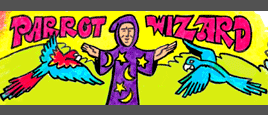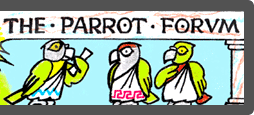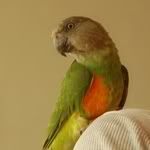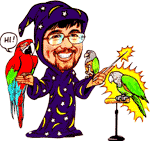Rue wrote:[quote="Azure Hanyo]... I really don't think she meant to make a jab at you.[/quote]
...it was just the teensiest, tiniest of jabs...[/quote]
Lmao...shhh...I know you were poking him. So it WASN'T a jab...not really...



Rue wrote:[quote="Azure Hanyo]... I really don't think she meant to make a jab at you.[/quote]
...it was just the teensiest, tiniest of jabs...[/quote]

Michael wrote:Kim S wrote:I understand why you used the species names. That wasnt what was confusing to me. But you were using big scientific wording and scientific explanations in the sentenses. I lost you.
Just say what part or word confuses you and I'll try to explain differently. I can't really guess what that would be otherwise.
Michael wrote:P. Robustus Robustus lives in small high altitude region of South Africa and is becoming quite endangered with remaining populations estimated to be no more than several thousand. A few scientists got some South African government grants and conservation society grants to manipulate some wording to be able to name the P. r. robustus a separate species so that it could be considered an endangered species. The other subspecies are doing pretty well and messing up the overall classification. Imagine a good neighborhood with one square block of poverty and trying to separate that into a different township so that it could be considered in poverty and receive special funding.
Michael wrote:They proposed two new species of Capes:
P. Robustus and P. Fuscicollis (which would contain the Fuscicollis and Suahilicus subspecies) in order to be able to declare Poicephalus Robustus an endangered species. Most of the evidence they used was based on minute variations in physiology and dna analysis that demonstrated a slightly bigger divergence between p.r.r from p.r.f and p.r.s.. While some scientists jumped on the band wagon and supported the species split so they could get this thing called "money" too, Cites did not buy it and rejects the claim that the two are different species. Based on the evidence given for splitting the species (and the scientists literally said in the paper that the main reason they want to split the species is for the sake of conservation), it is not convincing (based on the definition of a species as a group of organisms capable of interbreeding and producing viable offspring). Furthermore I have heard rumors of successful/viable mixing of the species but have not found any written evidence to support or reject this.



lzver wrote:Careful now .... the poicephalus bug tends to bite hard










Users browsing this forum: No registered users and 11 guests
| Parrot Forum | Articles Index | Training Step Up | Parrot Training Blog | Poicephalus Parrot Information | Parrot Wizard Store |